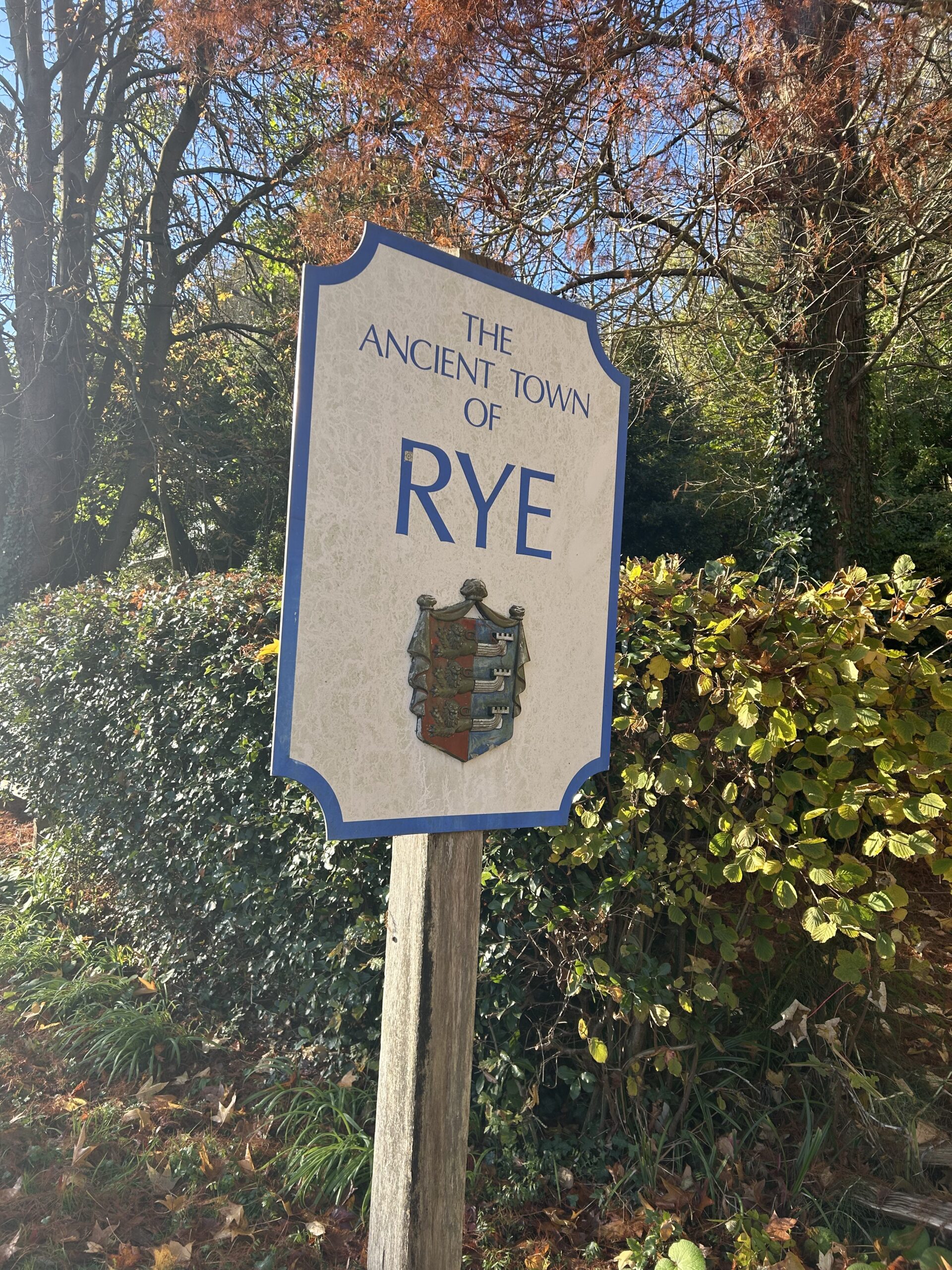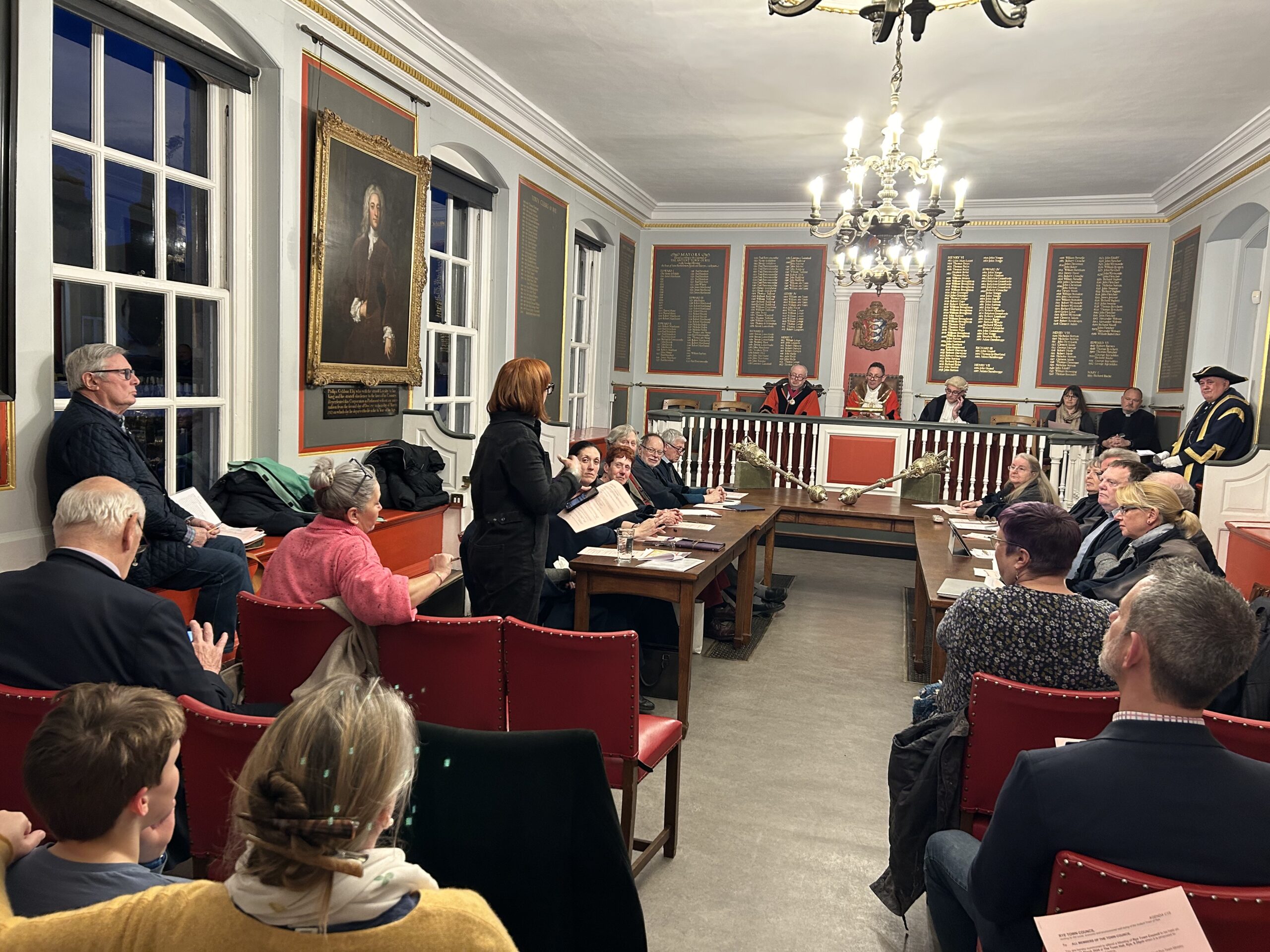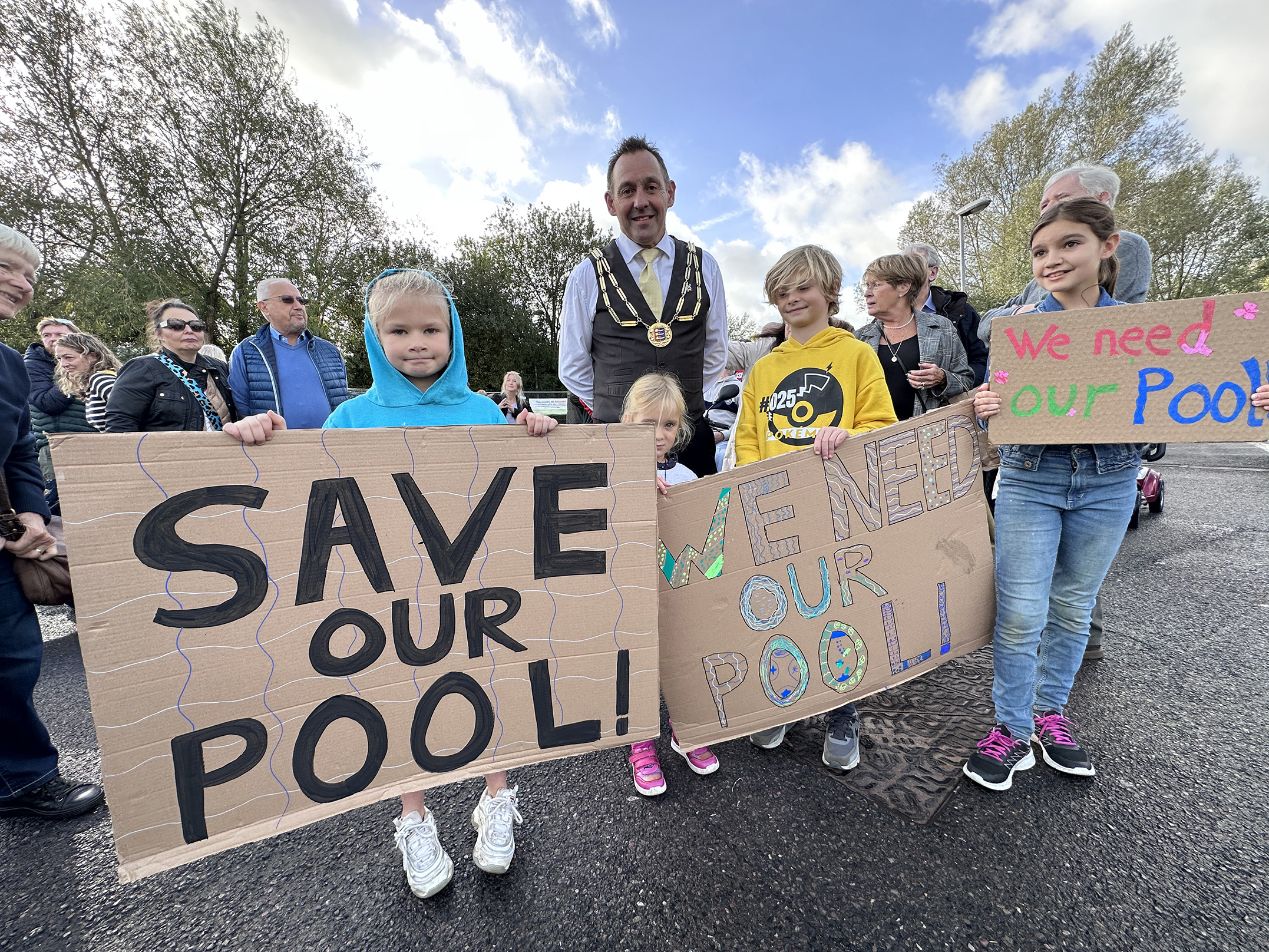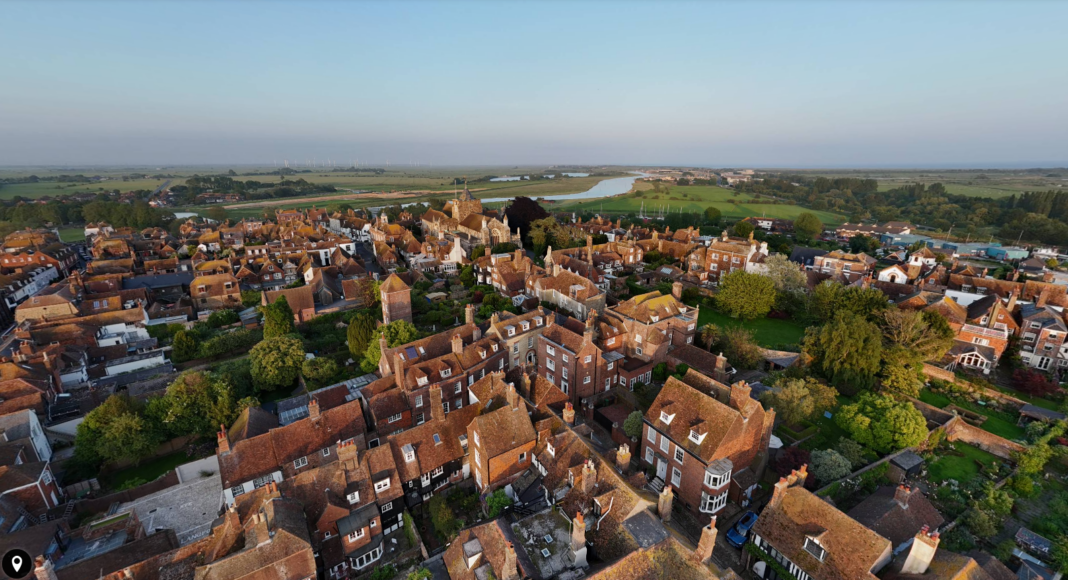Rye is a strange old place. Steeped in history and tradition it is a tourist magnet, but also has a widely diverse population with significant levels of deprivation. It is a great place to live and work but we also need a foodbank, and because of Rother cutbacks, have a range of deteriorating public facilities. Life is tough for a significant percentage of our community.
We are lucky in Rye to have a wide range of active, capable, and generous volunteers and benefactors who, along with the business community, allow Rye to maintain a disproportionately large breadth of services and activities despite having a population of under 5,000.

But running Rye has become rather challenging. It’s been an eventful year for Rye Town Council. Several changes, largely precipitated by decisions taken elsewhere, have forced a wide range of actions to preserve the services that support our community. Think of public toilet closures, allotment management, pool closure, loss of Rother support for the bowls and cricket club maintenance – and there are more.
Credit where credit is due, in many of these specific cases our council has responded and taken increasing responsibility for running or supporting important amenities in our town.
At the same time, dedicated volunteers and the Rye business community have stepped up to help make sure we can retain the impressive range of products, services and facilities that makes Rye… Rye.
But much of this has been reactive, not proactive. And what about the future? How do we plan for and retain all the important aspects of our town that that are so vital to residents and tourists alike?

Surely it is time to move from reaction to proactive planning. We know that the devolution of responsibility, and cost, from East Sussex and Rother District Councils is an irreversible trend. We also know that development decisions in Rye are largely out of the hands of the people who live here.. so shouldn’t we begin the process of deciding our own fate?
Over many years, responsibility has been stripped from local government and groups and accumulated centrally. Now the trend of responsibility is reversing, but without the power to make important local decisions. Big cities have shown how strong, mayor-led, structures largely make things better for local residents. Why not in smaller towns too?
Yes, we have our excellent local plan, currently being updated, but does it actually drive an implementation process to get what we really need in Rye over the long-term? We have already lost unique facilities such as the Brewery Yard Club, but more big challenges are coming up. We are set to lose Rye Creative Centre in its current form at least, including an incredible performing arts and exhibition centre to housing. We have developer-led projects at Jempson’s in Winchelsea Road and at the Ferry Road school site, and now Martello have released wide-ranging plans for housing on four sites in Rye, but are developers the ones to decide what Rye needs? Yes, we absolutely need more housing, but of what type? How do we identify the specific needs of our changing population to ensure that they are matched with the infrastructure that will be needed? Most importantly, these changes will inevitably change the character of Rye, so what sort of community do we want to develop and build in our special town – and how do we then partner with developers and planners to make this happen?

So if change is coming shouldn’t we take charge? Don’t we need a strong partnership between the council, business and residents that starts identifying critical local needs and controlling what happens in our town? Yes, this is hard work, but how about an agreed town plan, developed from the local plan, that seeks to address local issues and extends to social housing needs, cultural needs and medical and well-being needs, to name but a few. Rother and East Sussex should be funding and approving developments that meet our needs, not simply developer profit. And yes, we should be driving change, not resisting it, but in a way that works for us. Our future must also be planned in the context of climate change and all the challenges that will result. We can all see the fortune that is being spent to protect us from flooding but we cannot rely on flood defences alone. There is so much more that must be done to enable sustainable business, living and tourism.

What this requires is a total change in attitude in the way we run our town. Rather than relying on individual effort and reaction to issues that arise we need the community to decide where it wants to go. More housing in Tilling Green? Retention of a performing arts facility? How many, and what type, of affordable / social housing? Retention of “local” shops? Excellent health and well-being facilities? Provision of activities for young people in Rye? Supporting the farming and fishing community? Encouraging local produce? 5G for all?
Where is the “plan” that pulls all this together into a cohesive roadmap for our future? Can we transform our local leadership: council, business, volunteer organisations and individuals into a “Plan for Rye” that underpins our decisions and acts as a set of requirements for developments of any type, and takes into account all the needs of our diverse community?
Not easy, but without it we are dependant on others to decide our fate. How about a town debate, led by the council, to begin to take more control of our future?
We live in an amazing place, but let’s move from preservation to proactively securing a strong, thriving and sustainable community.
Image Credits: Clear Air Flying / Stuart Cooper , Peter Connock , Rye Town Council , Kt bruce .




Peter Connock is right we need change in this town and need to govern ourselves, what he fails to mention is the biggest scourge in this town, airbnbs and second homes, which has decimated Rye over the last decade, and is not a healthy mix for our declining community.
You are right John the same in smaller communities & villages.
I also feel that a greater sense of pride of Rye from the council and local residents needs to be encouraged. At the moment litter is a frequent sight, especially around the station area and public ‘garden’ spaces are under planted and look a mess. More litter bins are necessary and should be regularly emptied. Local schools could play their part in community activities which enhance our environment.
Could volunteers help with planting and maintaining public areas for the enjoyment of all? I feel we would all feel lifted if Rye felt a pleasant place to live for residents as well as visitors.
The real issue here is the loss of power in Local Authorities. Remove funding means removing power.
By all means draw up a plan. Without money to drive the plan……no power to implement.
We now have a scenario of private wealth and public squalor. The increase in the price of assets such as housing is symptomatic of this.
The challenge is how does Rye acquire power?
Great opinion piece from Peter and a totally on-point comment from Martin. A new approach is needed, currently we are overburdened with managing authorities – ESCC, RDC, RTC, National Highways, Environment Agency and numerous small bodies ( like the Romney Marsh Drainage Board). We also have a plethora of organisations working largely independently of each other to improve things for the local community – Chamber of Commerce, Tilling Green Community Association, Food bank, numerous charities, CIOs, CICs, Churches, community groups and, who could forget – Rye Partnership. Time we all got together?